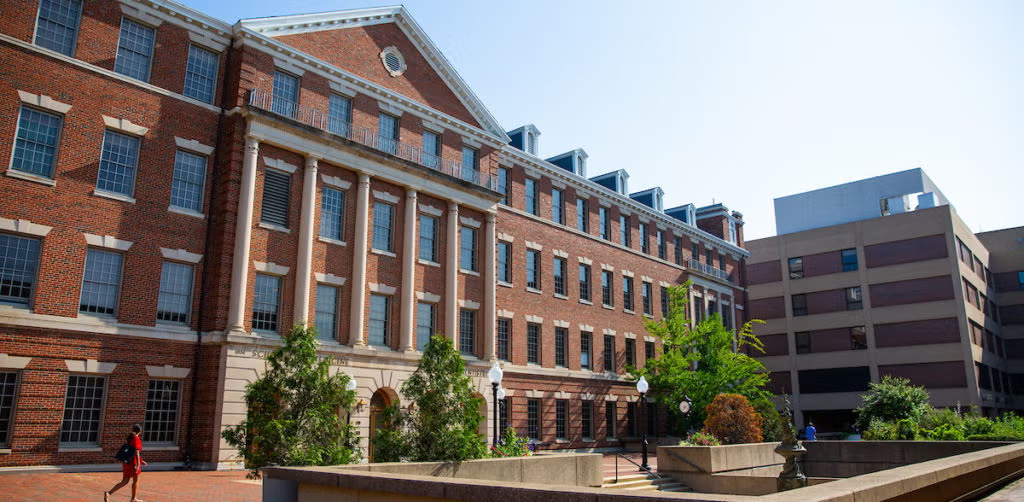A Georgetown University history professor received the Distinguished Leader Award from the Georgetown University Alumni Association (GUAA) Black Alumni Council on Jan. 8, recognizing his contributions to historical scholarship and the Washington, D.C. community.
Maurice Jackson (GRD ’95, ’01), who also teaches in the Black studies and music departments, researches African American history at the intersection of politics and culture. Jackson earned his graduate degrees and joined the Georgetown faculty after a career in community organizing with the U.S. Communist Party, which he left after the Tiananmen Square massacre in 1989, in which student-led demonstrations in Beijing that called for democracy and free speech ended in bloodshed.
Jackson said he was grateful for the award but plans to continue to prioritize his work rather than recognition.
“José Martí, the great writer, said, ‘All the glory in the world can be put into a kernel of corn’ — so I appreciate it, but I want to focus on this university helping more people,” Jackson told The Hoya.

As a professor, Jackson worked closely with university President Emeritus John J. DeGioia (CAS ’79, GRD ’95), including serving as the president’s representative to GUAA; serving on the Working Group on Slavery, Memory, and Reconciliation, which advised the university on engaging with its legacy of slavery; and helping inspire the university’s Black Studies department and Racial Justice Institute, a research center working to mitigate racism at Georgetown.
Jackson said his interest in social justice stemmed from growing up in rural Alabama and Newport News, Va., facing hostile white supremacy and holding working-class jobs.
“Growing up in the South caused me to start,” Jackson said. “My grandmother was the most formative person in my life, and I saw just how she suffered, how hard she worked — she worked her hands to the bones — and the white people treat you like you’re nothing.”
Jackson said he began to connect his commitment to social justice with academia when he studied D.C.’s racial history immediately after he earned his doctorate.
“I started looking at Washington — it’s a very complicated city,” Jackson said. “So I tried to tie my activism to my work. The worst thing about being an activist and a scholar is that you care so much for people, and this profession is not built for that.”
Priyana Cabraal (CAS ’25) said Jackson, who instructed her “Black History and Culture” and “Black Lives Matter” courses, is an important leader for the Black community at Georgetown.
“As a Black student at Georgetown, he has been central in cultivating a safe space for the Black community,” Cabraal told The Hoya. “We go there, we feel comfortable, we feel safe.”
Jackson said he is glad to have been part of the Black community and appreciates its support and efforts.
“The African American community is wonderful,” Jackson said. “It is a dedicated group of people who, more than anybody I know, come together with spirit — and made up of people who give, who care.”
Jackson said he appreciated working with DeGioia, who encouraged him to serve at then-D.C. mayor Vincent C. Gray’s invitation as the inaugural chair of the D.C. Commission on African American Affairs from 2013 to 2016, which advises the mayor on how to best engage with the Black community.
“I knew the president supported it, and I was able to work with graduate students in the school of public policy, and we were able to put together this fundamental report, which I think has had a tremendous impact on Washington,” Jackson said.
Jackson studied Black population gentrification trends while on the commission, building on his research into D.C. race relations and the city’s Black community, the focus of his forthcoming book on music and sports in racial activism, “Rhythms of Resistance and Resilience.”
Raheeg Zarroug (CAS ’25), who took Jackson’s courses “Freedom Struggles: African Diaspora” and “Black Lives Matter,” said Jackson tries to connect with every student.
“He’s in the pursuit of building connections with students,” Zarroug told The Hoya. “It’s really beautiful when you come across teachers who honestly want to spread the knowledge that they have.”
Jackson, who was inducted into the D.C. Hall of Fame in 2009, said he appreciates the recognition for helping people in D.C.
“For my kids, you want to leave a legacy, so I’m happy with that,” Jackson said. “That means I’ve done something for my city — that’s what’s important. I’ve tried to make people’s lives better in the city.”








